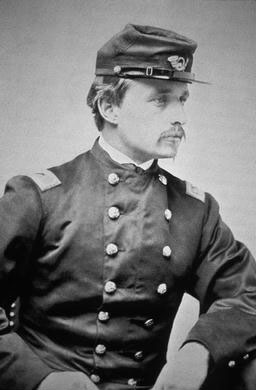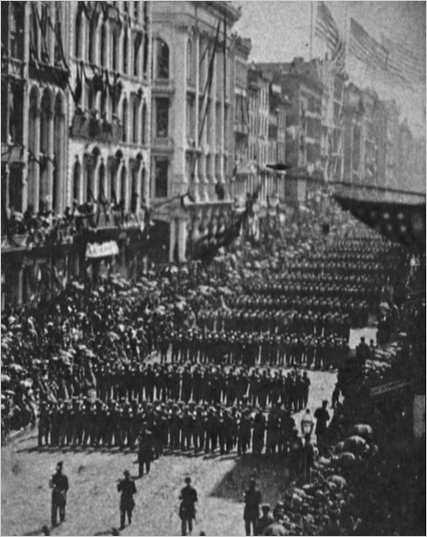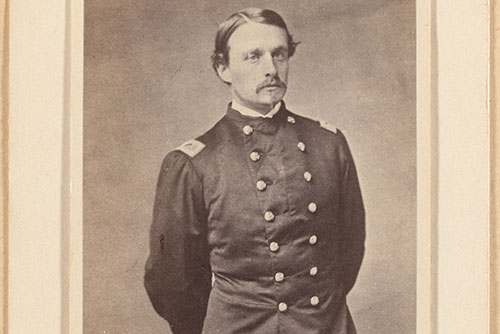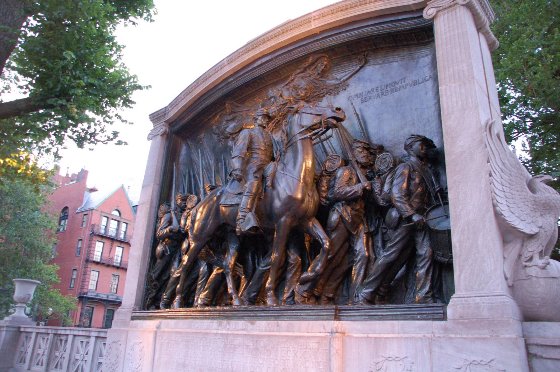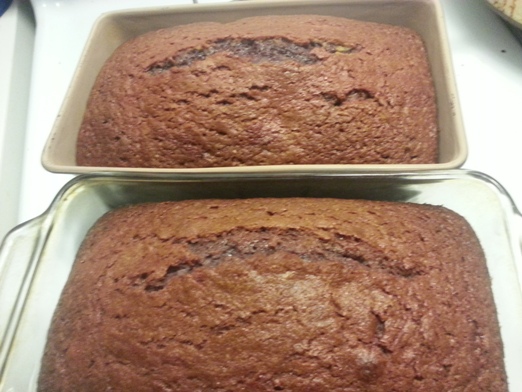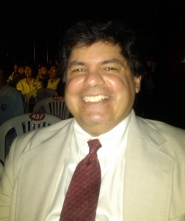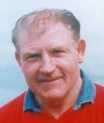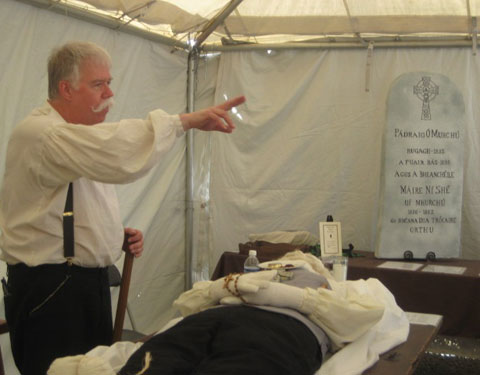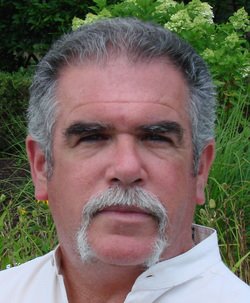
THE FIRST VOWEL IN YOUR NAME - What it represents
The first vowel in the spelling of your birth name is something of a
driving force in your Soul Urge (the number derived from the vowels in
your entire name). This is an indication of the direction of your
spiritual outlook in life and how you approach such things, as well as
your reaction to outer influences. The first vowel represents how one
will think, act and behave. If there is an abundance of the particular
vowel in the name this can create either great strengths or, it can
create areas of difficulty calling for particular attention and effort
for improvement.
The 'sound' of the vowel also has influence on the manifestation
of the letter. Vowels can either be positive, receptive, or dual.
Positive vibrations comes from letters that are long vowels such as the
'A' in Jane. A receptive vowel would be the short 'A' in Janet. A dual
vowel would be in a name in which two vowels are together in the
spelling of the name, such as the 'A' and 'U' in Paula. A positive
vibration is at its strongest and it is imperative that this vibration
is tempered somewhat by the individual; a receptive vibration may be
weaker, less dynamic and, a much weaker energy although, at times, it
may be too receptive. With a dual vowel, the strength of the vibration
would be divided between the two vowels in question. In all situations,
look to other facets of the chart in the Major Numbers to more clearly
understand the influences.
A – 1. Mental. Planet: Mars. When 'A' is the first vowel,
you will be authoritative, ambitious, active, strong and forceful. Other
attributes may include being progressive, independent, original and
adventurous. You will be one who pushes ahead with zeal and enthusiasm
holding strong convictions about that in which you believe. This vowel
has great emotional content, also. You will be one who has an interest
in new things, new ideas, and new concepts especially those that are of
your own original creating and conceiving. If you believe in something
you will defend your view against the world. You are more likely to
accept the advice of others if it re-reinforces your current thinking.
In many ways you enjoy being different.
You are a person that
wants to be the creator of new ideas and you trust yourself to know what
is best and hold to the thought that others will eventually follow your
lead. At many times you may not care what others think about you or
your ideas. Another part of you invites new contacts, opportunities, and
activities involving change. You are more inclined to want to break
away from the tried and true and enter the world of the unknown. It is
important that you guard against being too dominant, or too opinionated
and that you avoid any sense of false pride. While it is important that
you learn to be tolerant, it is equally important that you don't lose
your individuality. Too many 'A's' in a name may create a domineering
and controlling person as well as lending itself to sarcasm, cynicism,
intolerance and criticism towards others. There is a health caution in
that too many 'A's' may also create health issues with the head.
POSITIVE – You can be quite set in ways and you cannot accept
anything new or different. Because of this you may miss much and not
progress. Beware of being overly dominant and egotistical. RECEPTIVE –
There may be a tendency of being scatter-brained. You might also be
frustrated by life and circumstances in part due to your being an Idle
dreamer. You may also consider new things without much thought. DUAL –
You may hold no true beliefs of your own and consequently give off a
false sense of self.
E – 5. Physical. Planet: Venus. When 'E' is the first
vowel in the name, your relation to the five senses can be deep so you
must overcome temptations and excessive indulgences in pleasures of the
senses, especially sex. Your relationships and home may suffer because
of erratic and changing behaviors brought on by your somewhat impulsive
behavior. For you with an 'E' as the first vowel, life's experiences are
something of which you choose to partake. It is a letter of experience
as it occurs more often than all other letters. This can create an
element of needing to expect the unexpected. The versatility of the 5
energy may bring about many exciting adventures and opportunities, and
you will remain current and ready for anything. You are not particularly
bound by convention and you enjoy being different. To others you may
seem restless and bored although they will look to you for new and
different thoughts and ideas in part because you appear to be
knowledgeable and you use your intellect. You have great energy and you
need to keep busy.
You are an individual that likes variety, change and action. You
can be quite progressive, enthusiastic, versatile and adaptable. Your
natural curiosity leaves you open to, and cherishing new ideas and
willing to investigate what comes along. You should look to create
connections between the physical and the spiritual as it will be
necessary to maintain a balance between the intellect and the spirit. In
many instances there may not be much middle ground. Above all else, you
want freedom yet you should beware of taking hasty action. The 5 energy
of the 'E' brings much contact with others and a love of travel. At
times you may be too restless and changeable especially in the realms of
love and relationships, as well as in the world of speculation. Too
many 'E's' in the name can make one unfocused and they can make one
unfocused and unable to maintain anything of length. Money comes and
goes and 'easy come, easy go' is a mantra in life. Too many 'E's' can
indicate health problems with the throat, kidneys, and nerves (stomach)
resulting in indigestion and ulcers as well as making you unstable and
nervous.
POSITIVE – You must learn to control any nervous tension. You may
miss much because of a quick changing series of events. Learn to
appreciate what you have as a search for something new may lead to
regrets. RECEPTIVE – This creates situations in which you look so hard
for things may miss them. You may also lose control easily and again be
nervous or unstable. DUAL – You must guard against being too easily
confused, frustrated, or irritated. At times you may be too flighty with
your movements and activities being non-stop.
I – 9. Intuitive. Planet: Saturn. With the letter 'I' as
the first vowel in your name, it is important for you to cultivate
universal attitudes of love, understanding, sympathy, philanthropy,
altruism and humanitarianism and, you should be interested in the
welfare of others. By nature you are a generous person and you may not
be interested in things of the material realm although you certainly
understand the laws of attraction and return. As a loving individual who
seeks to comprehend the human condition, you will have many friends and
others will see you as one who understands. You may hold many
unorthodox beliefs and a spectrum of extreme opposites ranging from
quiet and energetic to erratic and selfish. The more positive and
balanced your are, the more sympathetic you will be, and you will be a
good servant of humanity. You are a person who can attract wealth and
protection when needed. You understands others and can gain success in
the pursuit of things that are beneficial to the many.
You are a person who dislikes petty and small-minded actions and
behaviors. You may be quite emotional and if you have many 'I's' you may
be sensitive and somewhat touchy. Your heart and passion rule your mind
and in most instances you are guided by emotion instead of reason. One
of your mantras is “if it feels right, do it.” You can be quite
intuitive and your intuition can often lead you in the right direction.
Although you may appear to be intense, you are also in possession of a
magnetic personality and are a law unto yourself. It is important that
you perfect what it is you know and stick with it. A very talented
individual, you may become bored with things even though you may not
necessarily like change or anything new.
If you tend towards the negative you will be self-centered,
selfish and self-indulgent. Also, beware of being too moody. You may
also be overly sensitive, petty, and easily offended. It is important
that you curb your impulsive tendencies. Be aware that if you become too
optimistic you can bring on failure and mistakes in your endeavors. You
can be a creative talent if your intuitive abilities are developed. If
your feelings are strong about something, then you should move forward
with it. With 'I' as the first vowel, you may encounter health issues
concerning the brain, heart, structure of the body (bones, etc) and
ears.
POSITIVE – You can achieve greatness in any area if you apply
yourself. It is important that you beware exhibiting cruelty and
selfishness towards others. RECEPTIVE – You may be easily bored and
become selfish and indifferent. You may have no control of your emotions
or reactions to others thus you must develop logic and judgment. DUAL –
You may be a bit of an extremist. It is important for you to strengthen
and maintain your positive aspects.
O – 6. Emotional. Planet: Jupiter. Having 'O' as the first
vowel in your name, you are emotional, balanced and very responsible.
You are a person who knows how to maintain a proper perspective on
things. You may be somewhat conventional and dogmatic while believing
that you are always right. You only want to see things your way,
consequently you are very strong-willed and you don't necessarily give
in to others. You like to prove to others that you are right even though
you run the risk of antagonizing people. You also like to see that
justice is served in situations and this makes you push for right
solutions to problems. With this in mind, it would be a good thing if
you can avoid arguments. To a degree, you are an innate problem solver
and mediator of differences. With 'O' as the first vowel you are one who
loves to give advice and counsel others. Serving others may very well
be a driving force in your existence.
You come across as someone who is poised, reliable and
trustworthy. You are sympathetic to the needs of others and can be quite
helpful if others need you, as you strongly desire to be useful. It is
important that you learn to reveal and use your hidden qualities for
the benefit of others. With your strong moral values, you make an
excellent parent or teacher. You are a person who needs to carry some
responsibility in order to feel important and it is your desire is to be
someone who is looked up to in the home and community. As such, you are
also someone who is constantly looking to make improvements in
situations. You love to be the host or hostess of gatherings and may
possess some talent as a party or event planner. If you use your
abilities and energy in a positive fashion you may uncover a talent for
music, the arts or poetry.
It is important that you learn to relax. You must understand that
what you desire will come your way as long as you participate in the
process. You are desirous of settling down, and once you have settled
down, you do not wish to leave. In many ways you are quite traditional
in your beliefs. Those with the first vowel of 'O' need to be surrounded
by harmony and beauty. You may have a natural affinity for gardening
and this would be a peaceful pursuit in which to become engaged. If you
have too many 'O's' you may have a tendency towards stubbornness,
slowness and despondency. Health issues that may need your attention
would be in the realm of the blood and circulation.
POSITIVE – You may be quite artistically or musically gifted.
Beware of being dominant, selfish, unfair, or argumentative. RECEPTIVE –
You may have a tendency to be quite emotional. Beware of creating
disharmony and unpleasantness in your environment. Do your best to stay
clear of criticism and despondency. DUAL – You may possess great
understanding and tolerance although you may have difficulties in
exercising these qualities and how to best act, think or believe. If
indecisiveness is prevalent, you may have a difficult time accomplishing
anything.
U – 3. Emotional. Planet: Moon. The 3 energy of the 'U'
make you a carefree, happy and jovial individual. You possess the gift
of words and as such, you are a good speaker. You are well liked and
are a good friend for others to have in their lives. You come across as
an optimistic, friendly, peaceful and inspired person who is fun to be
around. You are a source of positive vibes and quite charming which
makes you a popular person. You are talkative and can be the life of the
party. You are a lover of things of beauty which comes from your
emotional core. You can be idealistic at times and you must be careful
of losing touch with a realistic view of things. You may attract unusual
situations that cause suffering. You are a lover of nature and someone
who has a green thumb when it comes to growing flowers and plants. You
also have a knack for being a good judge of elegant and beautiful
things.
You should cultivate and trust your intuition. You intuitive
nature helps mold your beliefs although it is imperative that you don't
let your it get out of hand or you will lose control of situations. It
is therefore important that you stay open to receiving all the necessary
information that can be gathered even though you place great value on
your own knowledge. If you become stressed you may attract the 'unusual'
to you. In some instances you may not question something because of
your concern of what others may think. It is in these situations that
you present an acceptable front as opposed to being true to yourself.
Something else you must do is learn to accept your limitations while
using your talents and abilities the best you can. You possess a
fondness for study and analysis and your creativity can help bring about
success.
You must be careful to not become too clinging in interpersonal
relationships. Another realization to keep in mind is that you may have
unconventional love affairs that don't fit your idea of what one should
be. The more that you fear loss the more likely it is to come about.
Learn to use your willpower to fight excessive emotions.
Self-improvement should be something that you work on regularly. You are
also someone who looks to do many different things. If you are well
developed you will look to help humanity. If you are negative you may be
quite selfish and narrow-minded. Health issues of concern would be in
the area of the nervous system, mental stability, asthma and stomach
illnesses.
POSITIVE – It would be wise to heed your insights to teach and
write. It would be quite beneficial if you maintain balance in your
desires and nature. RECEPTIVE – You can be uplifting if you are not
distracted by selfishness or secrecy, narrow-mindedness or conservatism.
DUAL – You may be torn between the extremes of confusion and
indifference, and being too carefree. It will take work to create and
maintain balance.
Y – 7. Intuitive. Planet: Mercury. Because the nature of
the letter 'Y' is dual (it can be either a vowel or a consonant) you may
possess a bit of duality in your personality. This will be especially
true if you have more than one 'Y' in the spelling of your name and
because of this condition you may often have to make a decision between
two paths or two choices. With 'Y' as the first vowel in your name you
are quiet, reserved, thoughtful, refined and somewhat mysterious. You
are a person who likes form, theory and ritual and you would tend to be
analytical with a scientific or mathematical perspective on things. You
search for the truth but may not necessarily believe that which you find
and because of that you continue to search, although once you are sure
of your knowledge, you should look to share it confidently. You will
willingly share with others only if you believe they will value what you
share. Possessing a keen intellect and intuitive sense your advice is
valued by others. You hold deep beliefs that have been well examined and
studied for you are truly a person who wants to know and understand and
you may question much. You have your own sense of logic as well as
loving to dig deeply to learn and understand.
There may be a certain aloofness or enigmatic quality about you
leading others to misread you and find you difficult to understand.
While you may be quite intelligent, you may have a difficult time fully
expressing yourself and you may not believe that your abilities and
talents are as strong as they actually are. You are a person that knows
when to speak and when to keep quiet. Some of this behavior may be
intentional as you may feel the need to protect and insulate yourself
from the world. You may have a strong intuitive sense and you should
look to develop it and learn to trust your instincts. To others you may
seem material while actually being quite spiritual or, you may appear
reflective while being studious. You can be quite introspective and
introverted and you value your privacy.
It is important that you learn to develop and use tact and diplomacy to
help things move along.
You need quiet time for meditation and reflection and nature is a
great respite for recharging your batteries and regaining your
perspective on life. You may keep things to yourself and you should make
an effort towards learning to share. You must also learn to be
discriminating, for if you are not using your intelligence and intuition
you may be deceived by appearances. Personal growth and development is
the result of study, meditation, learning, prayer and observation. If
you are very negative you will lack tact and may be sarcastic. With the
first vowel of 'Y' your health issues may be associated with
reproduction organs, arms, hands and lungs.
POSITIVE – You can be quite receptive if left to your own
devices. If pushed by people or circumstances you may shut down.
RECEPTIVE – You are one who needs facts, logic and patience. You should
be careful to avoid secrecy and introversion. DUAL – The qualities of
the 'Y' are usually overruled by first vowel. You must learn to overcome
uncertainty, indecision and confusion.
Understanding the meaning of the first vowel in your name should
assist you in better understanding yourself although for optimal
understanding, the entire chart must be taken into consideration for the
deepest level of comprehension. If there is a dominant vowel appearing
many times in your name, and the number of the vowel is one of the Major
Numbers in your chart, then the characteristics, qualities, and
negative aspects will most certainly be magnified. As with all
Numerology, a complete profile reading will provide the greatest
insights and progress.
Blessings of Love and Light.
Look up your numbers!
Michael John Fierro
© 2014, Michael John Fierro. Reproduction in whole or part without the author's written permission is prohibited.
Click on Michael John Fierro for bio and list of other works published by Pencil Stubs Online.







